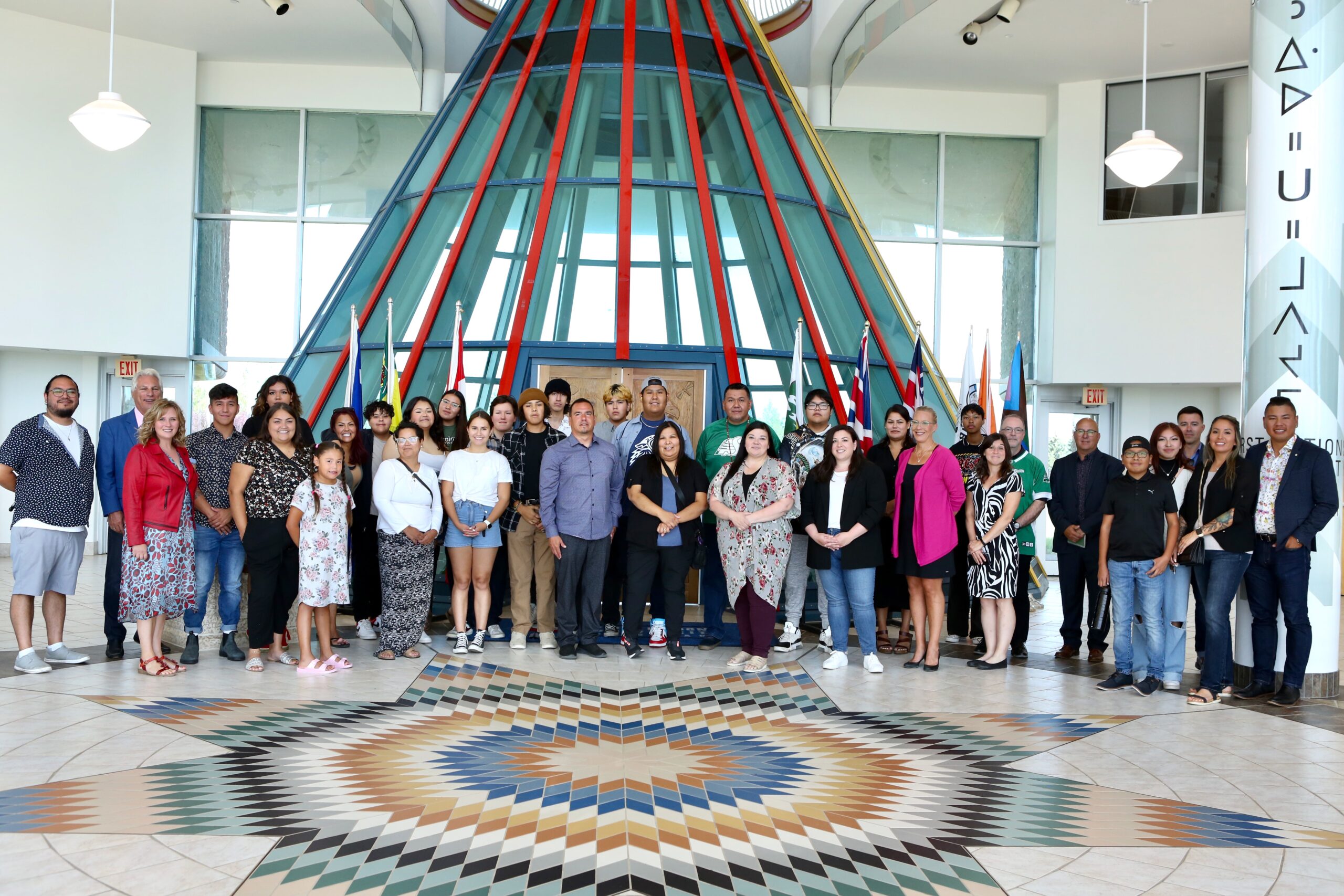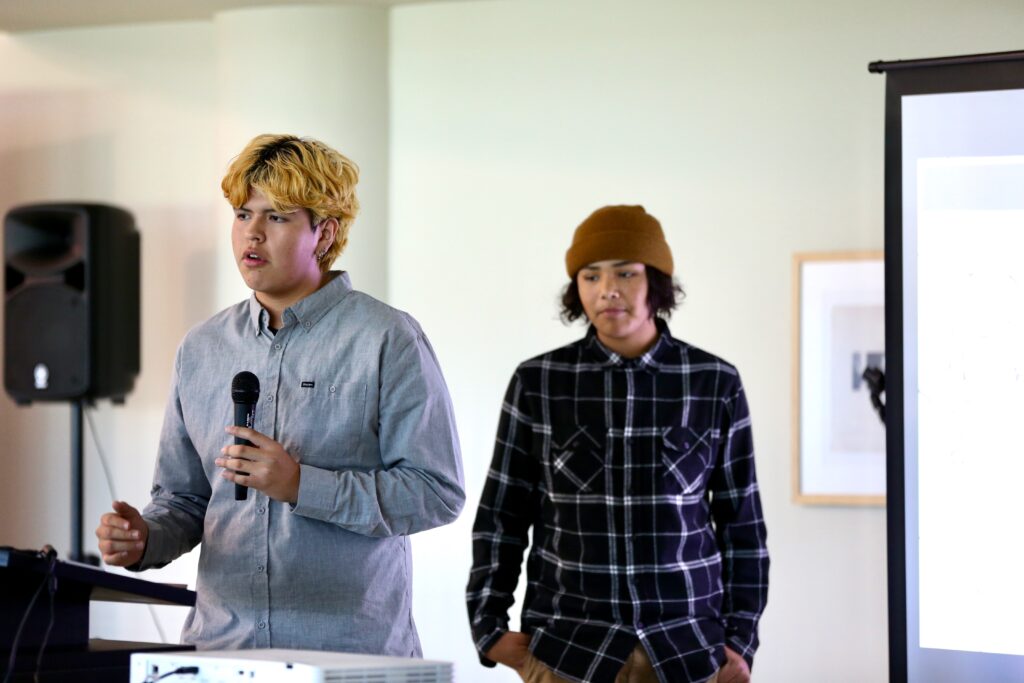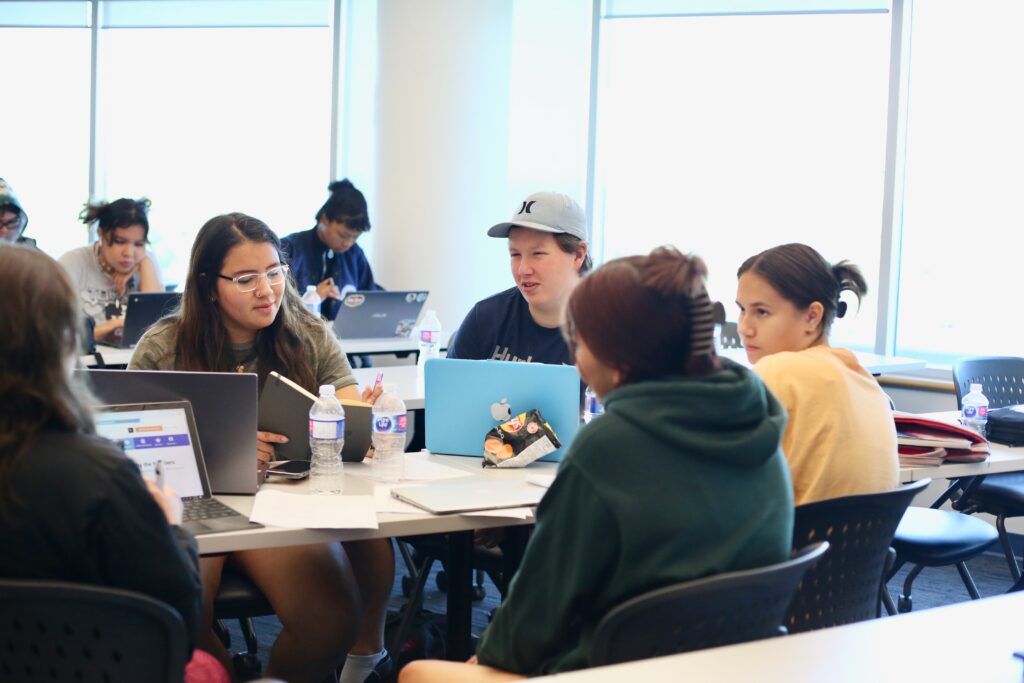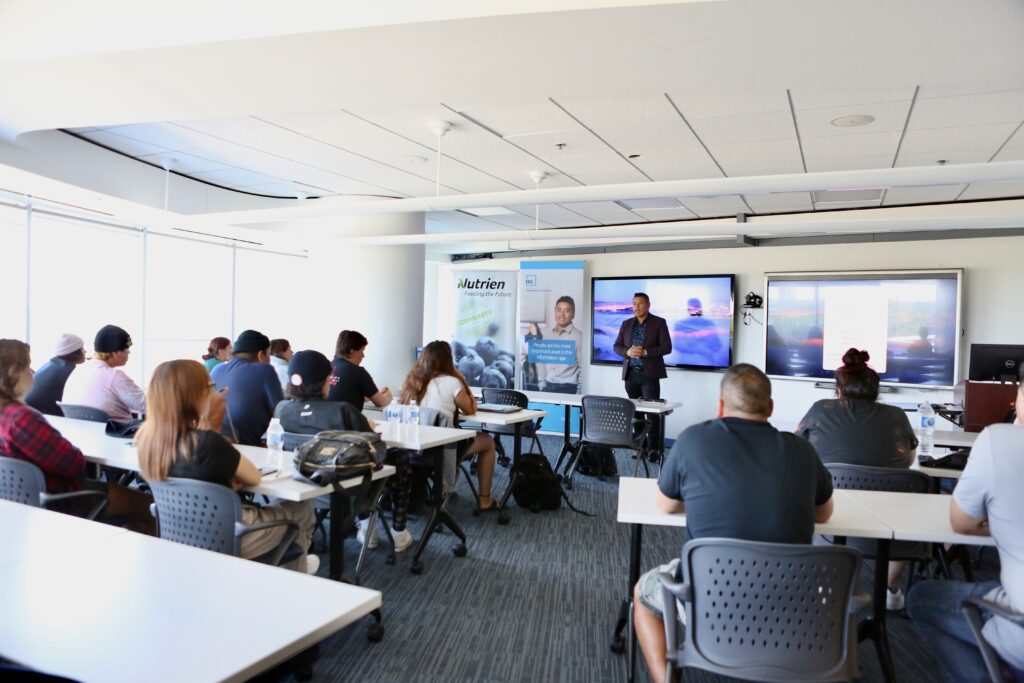
The First Nations University of Canada held its’ annual Indigenous Entrepreneurship Camp (IYEC) this August in Regina. This is the 15th year this camp was held, and according to Jason Bird, IYEC program coordinator, Indigenous Business and Public Administration, it was unusually competitive for Indigenous youth to secure a spot in the camp.
They received over 65 applications from across the country. Only 20 are selected, based on answers they give in an essay they are required to submit about why they want to learn about business, and attend the camp.
“This all came because of social media, that’s how people in B.C. heard about it, and in Labrador. Even a guy from Quebec wanted to come down and actually participate in the camp, or just observe, and help out because they want to develop it their community as well.”
The camp is aimed at Indigenous youth aged 14 to 19. Classes run from 8:30 am to 4:30 pm every day. There, students learn about business elements like marketing, public speaking, human resources, advertising, technology, and finance. They are put into teams, and each student creates a business plan from the ground up. They also get a chance to network with or listen to presentations from successful Indigenous entrepreneurs along the way.
The camp is also meant to give youth a glimpse of what it is like to live on-campus and attend classes at a university. The students live in the University of Regina dorms during their time at the IYEC camp. So, they live on-campus for the week, they eat on-campus, have classes at FNUniv during the day, and then they also get to do different group activities in the evenings like laser tag, canoeing at Wascana, or going to the movies.
Although, these are some of the fun aspects they weave into the daily experience, Bird does not shy away from the fact that the days are long – and the students work hard on their business plans until the final day, when students are finally able to pitch their idea to a panel of judges, ‘Dragons Den style.’
“This is how this camp functions, and at the end, you basically get rated, and whoever is voted the MVP of their team, they get the first pick of the prizes, and then you go down the line. Essentially, we want them to know: what does it feel like to pitch your business to investors?”
This year, Bird and IYEC coordinator Mercedes Keshane are continuing the vision that was originally designed and created (15) years ago by FNUniv business alumni Thomas Benjoe (FHQ Developments), and other FNUniv staff and professors like Joanne Goodpipe, Richard Missens, and Bob Kayseas. The program was based off a similar business camp, however Indigenous content was added, along with Indigenous business mentors and teachers to get to the end goal of putting Indigenous students in an environment to see what it takes to run a business and attend university.
Bird works diligently to make this camp successful, this year he raised $80,000 for the IYEC camp to run. Indigenous Services Canada (ISC) donated money through their education fund, along with the Hudson’s Bay Foundation, K + S Potash, Mosaic, SaskPower, and SIGA. Each year the camp grows, the incentives for the youth to attend, and work hard, grows as well.
“We’re like, let’s get them all the best stuff. This will be motivation, right? If you do well, you get the best pick.”
“So, we went to Best Buy and spent like $14,000,” Bird laughs.
The prizes range from some of the latest phones, to iPads, to scooters. The MVP of each team gets to pick first. The better you do the better your prize pick is, and no one leaves empty handed.
One of the students that was voted MVP of his team last year, is Aiden Akan-Kinistino. The now 18-year-old from Ochapowace Cree Nation says his business idea last year was a clothing company called, ‘Wawase.’ He pitched it as a modern clothing company that would collaborate with renowned Indigenous designers and artists that would do limited clothing line drops in Saskatchewan.
“When I was talking and explaining stuff, it was energizing and easy to be out there and not be like, shy or anything. I don’t really have trouble being social; I feel like I thrive off it in a way,” he says.
Akan-Kinistino is an artist himself, so compensating artists fairly, became an important part of his business plan and overall vision. This is not uncommon says Bird, who notices a trend where Indigenous folks tend to focus their post-secondary education on social work, education, or something with a humanitarian aspect where one actively helps people, or gives back to their community. Focusing on business tends to embody a stereotype of being solely about capitalism, an ideal that clashes with certain Indigenous values, and world views says Bird.
These are all conversations that are taken head-on at IYEC.
“I tell students, ‘If you help yourself, you help your family. If you help your family, you’re going to help your community, and it doesn’t have to be purely capitalistic.’ It can be based on helping people,” says Bird.
“You can look after the environment; you can be charitable with your time. You can run a business in a sustainable way. You can change the concepts, and the Western way of thinking about (business) and put our culture, and our values into it instead.”
Akan-Kinistino says he is happy he attended the IYEC camp because it taught him more about himself, and about how far he can go.
“I recommend it to anybody who has a creative side and wants to get their ideas out, because it definitely helped me do that a lot. It really pushed me to be more creative.”
“I knew I had it in me,” he says, with confidence.
Akan-Kinistino is now registered in university for this fall at FNUniv. His major? Business administration.
If you would like to learn more about the IYEC camp, visit: https://www.fnuniv.ca/academic/undergraduate-programs/indigenous-business-public-administration/iyec/



Notifications